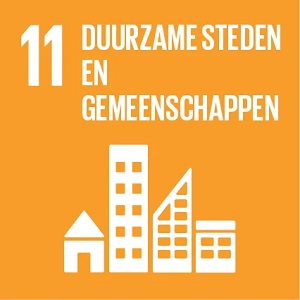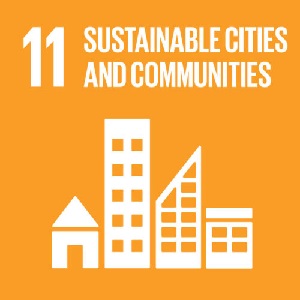(Scroll down for English) Lekker hè, zo’n snack uit de frituur. Dat vinden wij ook, alleen moet het frituurvet wel regelmatig worden ververst. En dat brengt een hoop afval met zich mee. Alhoewel, je kan het ook grondstof noemen, want tegenwoordig wordt het afgewerkte vet uit de restaurants en kantines van
Hogeschool Rotterdam opgehaald en verwerkt tot zogenaamd Hydrotreated Vegetable Oil (HVO). Oftewel, diesel voor in de vrachtwagen waar in z’n puurste vorm geen druppel fossiele brandstof voor nodig is. Zo dragen we bij aan de HR-focusgebieden Circulaire economie en Klimaatverandering. Je zou toch haast nóg een portie bestellen?
Hogeschool Rotterdam werkt aan verduurzaming in haar bedrijfsvoering, onder meer door afvalmanagement, duurzaam inkopen, werkgeluk, inclusief personeelsbeleid en energiebesparing. De Sustainable Development Goals (SDG's) vormen een leidraad bij ons duurzaamheidsbeleid.
 |
Doel 11: Maak steden en menselijke nederzettingen inclusief, veilig, veerkrachtig en duurzaam. Lees meer over SDG doel 11 >> |
Start with croquettes and end up with fuel
Tasty, isn't it, a snack from the deep fryer? We think so too, but the deep-frying fat should be changed regularly. And that means a lot of waste. Although, you could also call it 'raw material', because nowadays the used fat from the restaurants and canteens at RUAS is collected and processed into so-called Hydrotreated Vegetable Oil. In other words, diesel for trucks, which in its purest form does not require a single drop of fossil fuel. In this way, we contribute to our Focus themes Circular Economy and Climate Change. Sounds good enough to order again!
 |
The Sustainable Development Goals serve as our guideline for reaching a more sustainable University of Applied Sciences. |
